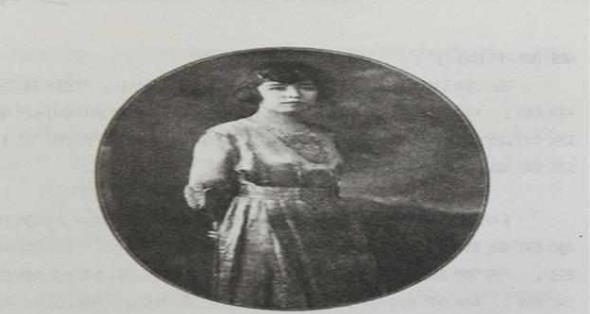During the Republic of China period, when new literature emerged, there were talents such as Xu Zhimo, Zhu Ziqing, and xie wanying lin huiyin and other talented women. Among these talented women, Lü Bicheng is also a existence that the world cannot ignore, and is called the four talented women together with Xie Lin and others.

Lü Bicheng was born in 1883, and for a long time the family was quite wealthy, and his father was the director of education in Shanxi. But when he was 12 years old, his father died of illness, the family fell in the middle of the road, and the ethical drama of incomparable dog blood also happened to Lü Bi. Evil relatives seized the family property of Lü Bicheng's family and imprisoned Lü Bicheng's mother and sister. Lü Bicheng, who was in the capital, did not succumb to this, but began to run around, asking his father's former friends to lend a helping hand, and finally rescued his mother and sister.
After that, Lü Bicheng's mother and daughter stayed at her uncle's house until she became a family. However, Lü Bicheng was dismissed by her husband's family because she was "full of courage and fear that it would be difficult to discipline", and she was scolded by her uncle because she wanted to go to the academy to study. Since then, Lü Bicheng has made up her mind to be a woman who is self-reliant and self-reliant, no less than a man. In the early morning of the next day, Lü Bicheng resolutely decided to run away from home.
Talented people will not be buried, and soon, Lü Bicheng was invited to be a trainee editor of the "Grand Gazette" by the editor-in-chief of the "Grand Duke". Soon after, Lü Bicheng became famous and worshiped Yan Fu as a teacher. In 1906, at the age of 23, Lü Bicheng became the principal of the Beiyang Women's Normal School!
In that era of male superiority and female inferiority, Lü Bicheng believed in independence and autonomy, which can be called ahead of an era. She and Qiu Jin were close friends, and at the time of Qiu Jin's death, Lü Bicheng risked death and stole the body to bury Qiu Jin, and wrote "The Biography of Revolutionary Woman Qiu Jin" in English, which was published in foreign magazines and caused a sensation throughout the country.
Because of this article, Lü Bicheng went deep into the dangerous situation, yuan shikai loved cai, extricated Lü Bicheng from difficulties, and hired him as a confidential secretary. However, Lü Bicheng saw through Yuan Shikai's restoration, resigned indignantly, and went to Shanghai to devote himself to the business world. In three or two years, Lü Bicheng became a businesswoman on the rich side of Shanghai.
This independent woman eventually became the first leftover daughter of the Republic of China and never married in her life. In detail, she believes in independence and autonomy, and she is in the limelight, how many men at that time can be worthy of her? At the material level, many people may be able to do it, but at the spiritual level, no one can match.
In 1943, Lü Bicheng died at the age of 61, and all his property was donated to the Buddhist temple, cremated and buried, without a trace. This powerful woman should still be a model for women. And she is really a strange woman in China in the past hundred years, who can write and fight and dare to love and hate.